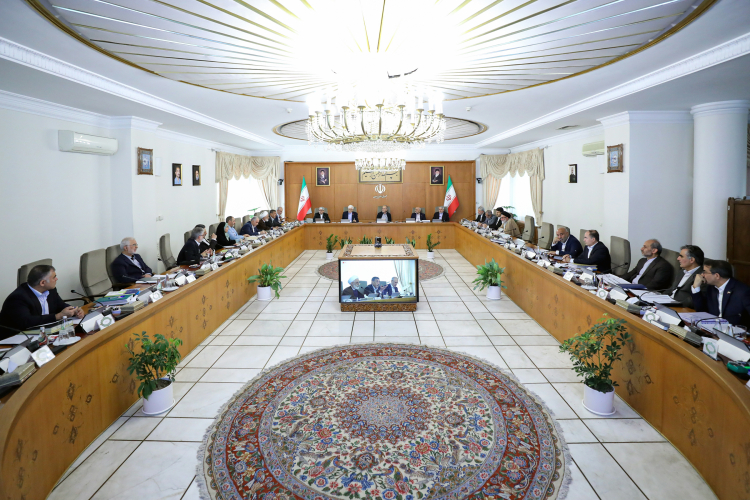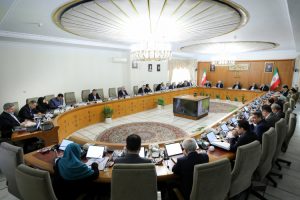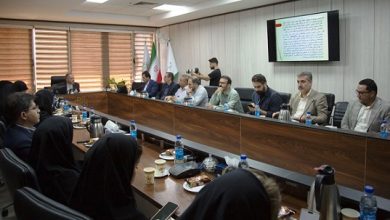
The approval of five national tobacco prevention packages — covering schools, universities, multimedia productions, cyberspace, and public places and workplaces — marks a milestone in Iran’s cultural health policies and represents new hope for a tobacco-free generation.
Following two years of intensive efforts by the Iranian Anti-Tobacco Association and close collaboration among scientific, cultural, and executive bodies, particularly the Secretariat of the Supreme Council of the Cultural Revolution and the Council’s Think Tank members, these comprehensive prevention packages were finalized and ratified during the 119th session of the Supreme Council of the Cultural Revolution, chaired by President Masoud Pezeshkian, on Tuesday, October 14, 2025 (22 Mehr 1404).
According to Dr. Mohammad Reza Masjedi, Secretary-General of the Iranian Anti-Tobacco Association, the ratification of these five national packages marks the beginning of a new era in Iran’s health-oriented policymaking.
Dr. Masjedi emphasized that, after years of effort to move the issue of tobacco control from the margins to the center of national cultural decision-making, this achievement represents a historic step forward. He stated:
“The approval of these five policy packages not only provides an operational framework for tobacco control but also signifies a turning point toward sustainable health and a tobacco-free society in Iran.”
“Changing the culture of consumption is the key to controlling it,” Dr. Masjedi noted.
Highlighting the importance of the decision, he said:
“This is the first time that tobacco control has been elevated to a national, social, and cultural priority with legal enforceability. The resolution was approved at the highest level of cultural policymaking in Iran, with the participation of the heads of all three branches of government. This means that all executive agencies are now legally obligated to implement its provisions.”
Dr. Masjedi pointed to the unprecedented collaboration among ministries and institutions, from the Ministry of Health and Medical Education and Ministry of Education to the National Broadcasting Organization, religious seminaries, universities, and NGOs, emphasizing that:
“This synergy demonstrates that combating tobacco use is no longer solely the government’s responsibility, but a collective movement of the nation.”
He expressed appreciation for the continuous efforts of the Ministry of Health, acknowledging its crucial role at the forefront of public health protection.
“With the activation of the National Tobacco Control Headquarters and coordinated implementation of the new resolutions, we can expect significant progress in reducing tobacco consumption nationwide,” he said.
Dr. Masjedi also addressed the serious health and economic consequences of tobacco use, noting that:
“Over 60,000 deaths annually in Iran are attributed directly or indirectly to tobacco use, with an estimated economic burden exceeding 40 trillion tomans each year. Yet, the greater threat lies in the cultural normalization of tobacco use, especially among youth. The new national policy has been specifically designed to counter this normalization.”
He added that the adopted strategies provide a roadmap for rebuilding societal beliefs about health and lifestyle, stressing that success depends on public engagement:
“Families, teachers, business owners, and producers all play decisive roles. Once we collectively recognize that tobacco is an enemy of our children’s health, the path toward cessation, prevention, and tobacco-free environments will become achievable.”
As a university professor and health advocate, Dr. Masjedi emphasized the Association’s key goal:
“To engage the public through education, media, digital platforms, and cultural dialogue. This new policy framework establishes the legal and ethical foundation for such engagement.”
He concluded:
“Today, we are witnessing the birth of a national policy that rekindles hope for a healthier future. Our goal by 2035 (1414 in the Iranian calendar) is to achieve a marked reduction in tobacco consumption, reshape public attitudes, and nurture a healthier generation. Achieving this vision requires collective action — from the government, parliament, judiciary, cultural institutions, media, and most importantly, the people. Through coordinated implementation, we can build a society that is healthier, more aware, and tobacco-free.”






